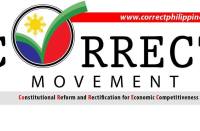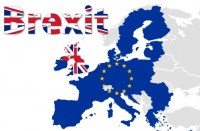On Monday, President Duterte will give his State of The Nation Address (SONA) which is likely to be dominated by the issue of constitutional reform in order to create a new federal and perhaps a federal-parliamentary system in The Philippines. While the country should be bracing itself for a full and transparent debate on the kind of new political system that will be adopted when the final reformist proposals come before the Congress - instead the anti-Duterte media are readying a barrage of sensationalist fake news stories designed to not only discredit the Philippine President but much more importantly, to try and distract from the topic of constitutional reform.
With this in mind, here is your guide to decoding the anti-Duterte fake news sensationalist media. First is what the anti-Duterte media are likely to say, followed by the truth behind the matter:
1. “Duterte is attempting to enshrine his permanent dictatorship”
In actual fact, Duterte is looking to implement a system that vastly limits the power of central government including and especially where the office of the president is concerned. By moving to create a federal republic, powers currently vested in the Congress and President will be devolved to new federal governments, thus diminishing the overall influence of the head of state.
Furthermore, as Duterte’s party PDP-Laban have proposed further reforms to create a parliament which would weaken the role of the president even further, Duterte is actually one of the few leaders in modern history to advocate for a system that would make his office less rather than more powerful.
Furthermore, Duterte has repeatedly stated that as soon as federal reforms are implemented, he will step down from power.
2. “Duterte is eliminating checks and balances”
In reality, a federal system allows for far more checks and balances as the national government is restricted from telling federal units how to implement and execute policies, while the constitution restricts both federal and national units in their ability to conflict with one another.
Furthermore, in an ideal federal-parliamentary system, there are actually more authentic checks and balances than in the current system as in a parliamentary system, the opposition are able to scrutinise government proposals in real time in the format of extended debates. Furthermore, in a parliamentary system, if an opposition party feels that government proposals are incredibly poor, they can call for a vote of no confidence in order to legally remove the government from power and pave the way for new elections.
3. “Duterte is a blasphemer and no one should take him seriously”
Sadly, some of the people saying such things are the same people who have ignored decades of systematic child abuse within the Roman Catholic Church in The Philippines. As a victim himself of a child molesting priest, Duterte has empowered other victims to find the courage to remain pious in terms of a relationship with God while saying that it is possible to find spiritual enlightenment outside of any given church.
The Philippines is not a theocracy, but instead is a country with a legally mandated separation of church and state. Sometimes however, Duterte’s clerical opponents act as though the country is a theocracy. In putting such people in their place, Duterte is actually standing up not only for the victims of abuse but is standing up for a country whose temporal political system has been meddled with for far too long by a Church with a clear neo-colonial mentality in far too many cases.
4. “Duterte is like Hitler…he said so”
This wantonly childish accusation is based on one of the statements Duterte made where he intentionally tries to “shake the tree” to put it in his own words. In 2016 Duterte stated that while Hitler killed millions of Jews, “here are 3 million drug addicts (in the Philippines). I’d be happy to slaughter them”.
Duterte is in fact well-known for pushing the envelope in terms of rhetoric but as Russian opposition leader Vladimir Zhirinovsky who often speaks in a similar style stated, when he became involved in Russian politics, things were so corrupt that one needed to speak loudly and in shocking ways in order for one’s positions to be heard and understood by the masses of people. The same today applies for Duterte.
Duterte has never threatened to kill anyone on an ethnic or religious basis. In fact, Duterte is about to achieve what none of his predecessors did in finally seeing through political autonomy for the Moros (Philippine Muslims) on Mindanao. Because of this, Duterte remains incredibly popular among Moro voters. In fact, Duterte even has Moro relatives, thus making the Mindanao native far more aware of the problems facing Moros than many of his predecessors.
Furthermore, in September Duterte will officially visit Israel where clearly the government does not consider him to be “like Hitler”. Perhaps when he is there he should show the leadership photos of high ranking members of the Liberal Party of The Philippines including the current Vice President who took a smiling photo while sitting on a Holocaust memorial in Germany.
Those in glass houses should not throw stones.
5. “Duterte is a killer who hates democracy…oh and he loves China”
When the fake news media need a fully fledged distraction from the kind of intellectual debate required at a time when constitutional change is the issue of the day, they often bring out the perennial lies about Duterte being an anti-democratic killer who is loyal to China and not The Philippines.
First of all, Duterte’s proposals for constitutional reform, especially those from his party will make the country vastly more democratic. Already his war against corporate/political oligarchs represents one big move towards draining a swamp of a political system which thrives on deadlock rather than one which can accurately and effectively execute the will of the people.
Secondly, those who continue to misrepresent Duterte’s drug war, I would simply refer them to my statement below directed specifically to western consumers of fake news about Duterte:
“For those in the west where marijuana legalisation is becoming increasingly common and therefore associate Duterte’s drug war with some sort of 20th century US style war on marijuana, one should note that the drug problem in The Philippines centres around a particularly potent and explicitly dangerous form of meth known as Shabu. Individuals on Shabu are a danger not only to themselves but to their families and strangers. Shabu takers are widely known and feared due to the fact they commit the most gruesome crimes against humanity throughout the nation.
From armed theft to random murder and breaking into family homes and raping everything from infants to the elderly, those on Shabu are transformed into horrific monsters that no society should have to deal with. This is a far cry from the ‘weed culture’ of certain countries and to this end, Duterte has voiced a position in favour of legalising medical marijuana.
But when it comes to hard drugs like Shabu which have turned once peaceful towns and cities into war zones reminiscent of something in Yemen or Syria, Duterte has taken a zero-tolerance, hands on approach to the drug problem which remains one of his most popular policies in a country crying out for human rights for the normal law abiding citizens.
It should be further stated that Duterte has never given so-called “shoot to kill orders” but has insisted that when a suspect is a clear and present danger to those around him, police and civilians have the right to restrain a dangerous individual with lethal force as a last resort in order to avoid the bloodshed of innocent people. Duterte has further expanded rehabilitation programs for those who voluntarily turn themselves in or are peacefully apprehended- thus proving that the “death squad” narrative is not only taken out of context but is totally misrepresented by many so-called journalists.
Finally, as the Shabu trade fuels violent armed gangs of mafioso warlords as well as terrorist groups ranging from the far-left NPA to Takfiri groups aligned with Daesh (ISIS), Duterte has done a service to the wider global war against terrorism by attacking a crucial funding source for barbaric terrorism”.
Thirdly, when it comes to foreign policy, there is a word for Duterte’s vision and it is called non-alignment. Duterte seeks to avoid a war involving the collision of nuclear superpowers on Philippine soil. In renouncing hostility towards China, Duterte has simultaneously opened the door to much needed economic investment from the Chinese superpower that The Philippines desperately needs. This is simply common sense on both a patriotic and win-win model. The Liberals are welcome to fight a war with a nuclear superpower should they wish to do so. But before they do, they should read this.
Conclusion
President Duterte has a major challenge in front of him and this is deciding on a final constitutional reform deal that will impact the country for decades to come. The irresponsible pro-Liberal corporate media continue to distract from this important challenge that all Filipinos have a right and perhaps also an obligation to debate in a civilised manner. It is time to ignore the distractions from media outlets who do not have the best interests of anyone but themselves at heart.



